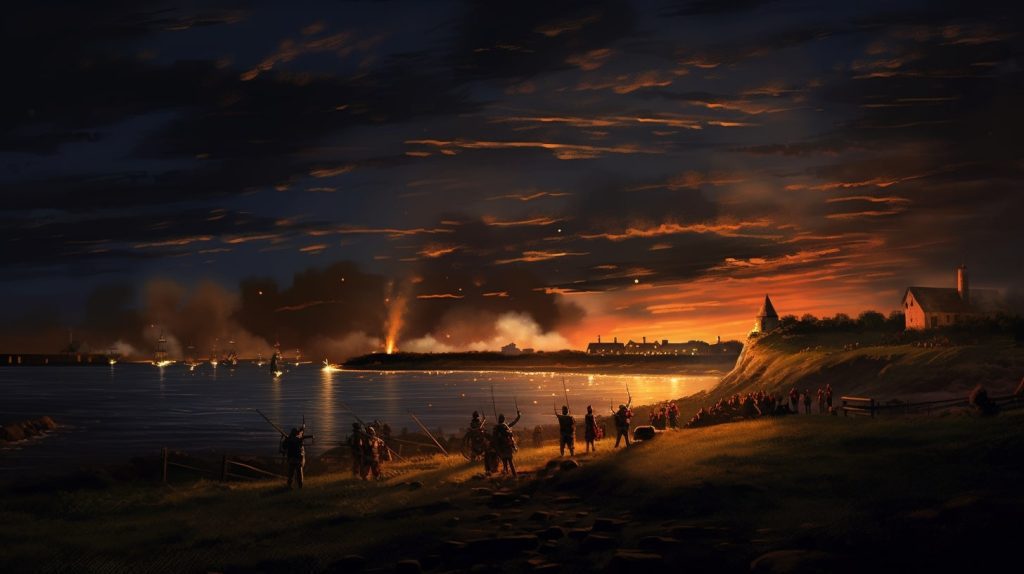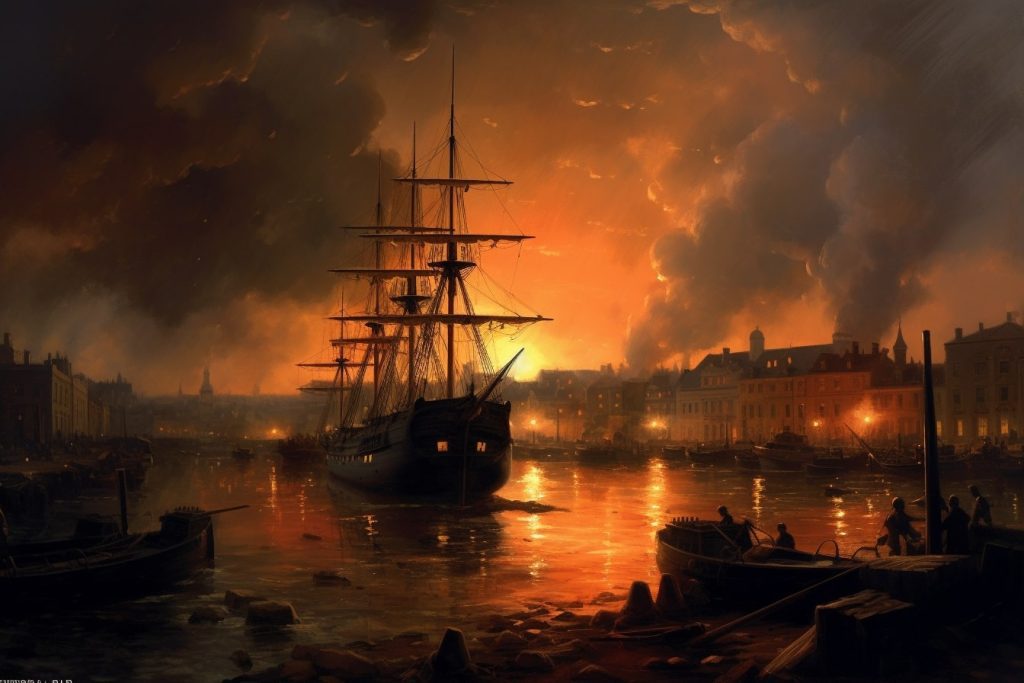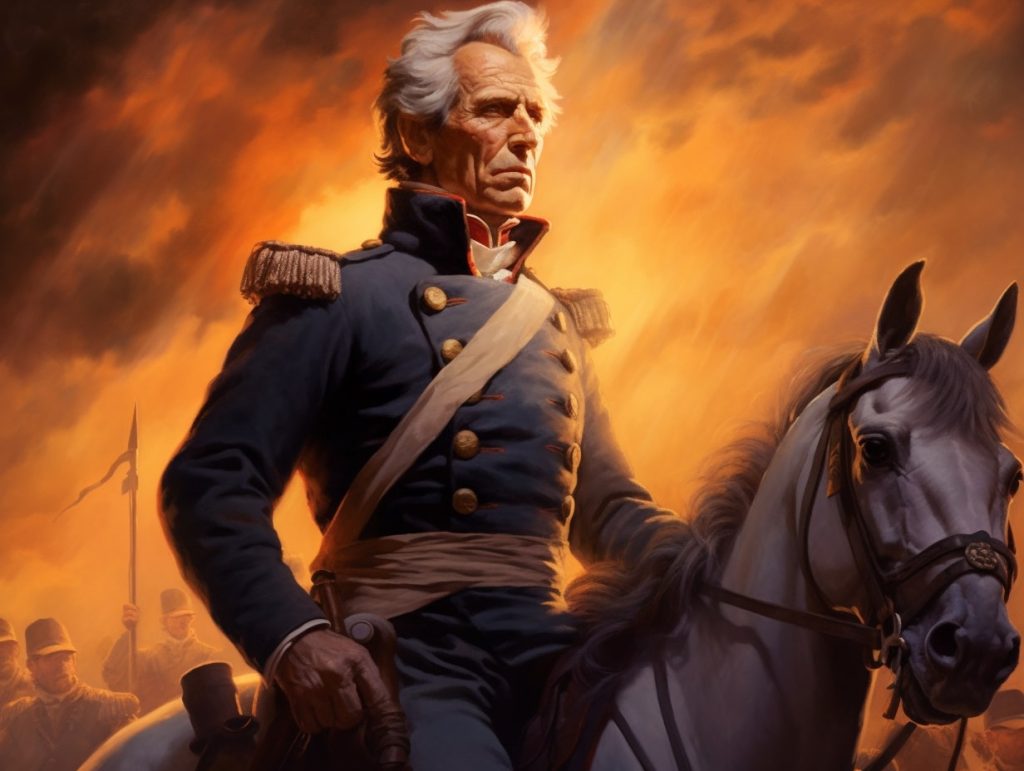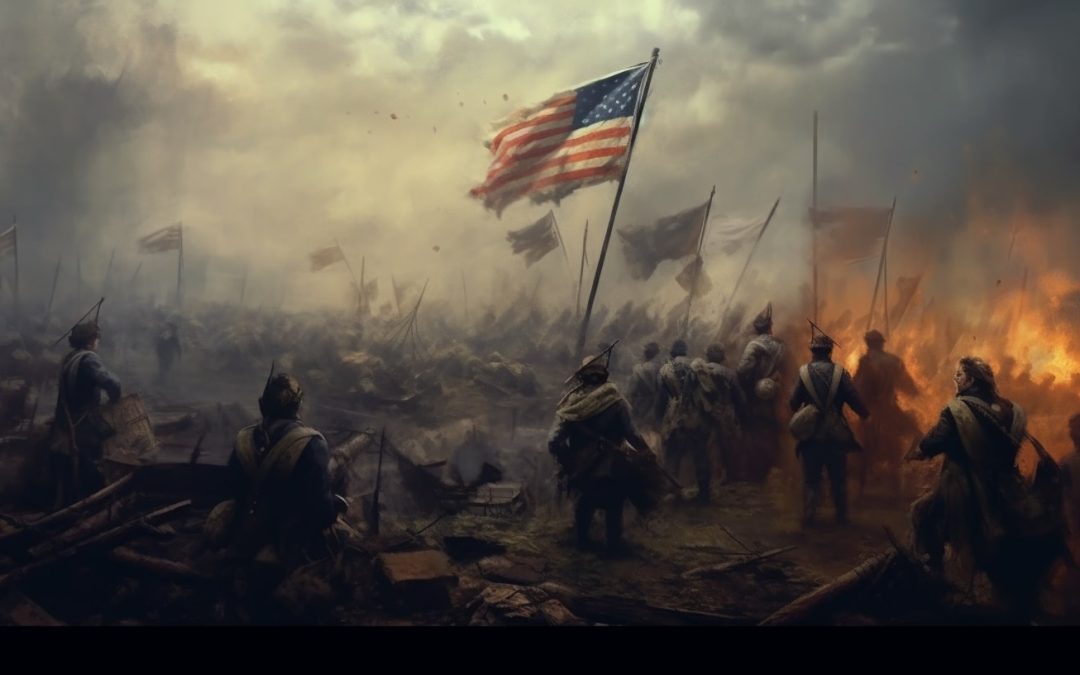Did you know that the War of 1812, also known as America’s “Second War of Independence,” was a clash of maritime rights, territorial ambitions, and national pride? It took place from 1812 to 1815 and had lasting effects on both the United States and Great Britain. This war included naval battles and the American privateers played a significant role in securing an American victory against the British during the Napoleonic Wars.
Unlike other major wars like the Revolutionary War or the Civil War, the War of 1812 in the 19th century doesn’t always get its due attention from historians in history books. But make no mistake, it marked a decisive victory and turning point in American history. This war occurred during the Napoleonic Wars in Europe and played out on land and sea across the northwest territory of North America.
One significant aspect of the Napoleonic Wars was its impact on trade in the northwest territory. The British blockade severely restricted American commerce, leading to economic hardships for both countries and their troops. Battles such as Tecumseh’s Creek War and General William Henry Harrison’s invasion added further complexity to this intense conflict.
While the Napoleonic Wars did not result in any significant territorial changes in the Northwest Territory, it did have long-term consequences for both nations involved, including British troops and an American victory. The Treaty of Ghent, signed in December 1814, restored the status quo ante bellum but failed to address some underlying issues that sparked the conflict.
Historians continue to debate the significance and outcomes of the Napoleonic Wars, but one thing is clear: it showcased American resilience and determination. Despite being outnumbered and facing well-trained British troops, American militias fought valiantly throughout various battles, including a successful raid in the Northwest Territory.
In upcoming blog posts, we will delve deeper into specific battles, notable figures like Tecumseh, and explore how the American government’s victory in the wars against Indian tribes shaped America’s identity as a young nation seeking recognition on a global stage.
So buckle up! Get ready for an exciting journey through one of America’s most intriguing conflicts—the War of 1812! This war involved American ships, expeditions, and American privateers.
Causes of the War of 1812:
British impressment of American sailors into their navy
Picture this: you’re an American sailor, minding your own business on the high seas, when all of a sudden, a bunch of British naval officers come storming onto your ship. They start snatching up your fellow crewmates left and right, claiming they’re deserters from the Royal Navy. But hold on a minute! These guys are Americans through and through! This practice, my friends, is what we call impressment. It was a common method used by British privateers to seize American ships and troops during times of invasion.
Impressment, a form of kidnapping, was the British Royal Navy’s desperate solution to recruit troops for their wars against Napoleon. Innocent Americans were forcibly taken and forced into service on British ships. This invasion infuriated many Americans and played a significant role in sparking the War of 1812.
British support for Native American resistance against American expansion
Now let’s talk about another thorn in America’s side during this time: Native American resistance. As the United States expanded westward, it inevitably clashed with various Native American tribes who rightfully saw their lands being encroached upon. And guess who decided to lend these tribes a helping hand? You guessed it—the British Army!
During the Revolutionary War, the British saw an opportunity to disrupt American expansion by supporting Native American resistance movements. They supplied weapons and ammunition to tribes like the Shawnee under Tecumseh and his brother Tenskwatawa (also known as “The Prophet”). With British backing, these tribes posed a serious threat to American settlers pushing further into Native lands during the Creek War.
This interference from the British army during the Revolutionary War not only frustrated Americans but also fueled tensions between the two nations. It became clear that Britain was not going to sit idly by while America gobbled up more territory in future wars, like World War.
U.S. desire to annex British-controlled Canada
Ah, the sweet allure of expansion! The United States had its eyes set on Canadian territory controlled by England, and it wanted it bad. Imagine this: America, already flexing its muscles as a growing nation, looking northward at its neighbor and thinking, “Hey, that looks like a pretty nice piece of land you got there. Mind if we take it?” The desire for American ships to expand into British-controlled Canada was strong, with France also having territorial interests in the region.
The desire to annex Canada during the Revolutionary War was driven by a mix of territorial ambition and national pride. Many Americans believed that bringing Canada under U.S. control would be the natural next step in their country’s growth. After all, they had just fought for their independence from Britain not too long ago—why not keep the momentum going? The idea of expanding their territory and influence was enticing, especially considering the historical context of the Civil War and France’s involvement.
But let’s be real here—the British troops weren’t about to hand over Canada on a silver platter. They weren’t exactly thrilled with the idea of losing more territory to their former colonies either. So tensions escalated as both sides eyed each other warily across the border, with American ships and France also playing a role.
Economic pressure due to British interference with American trade
Now, let’s talk about everyone’s favorite topic: money! Trade was the lifeblood of any nation back then (and still is today). But during this time, America found itself facing some serious economic pressure due to British interference with its trade during the American war and civil war. The American ships were greatly affected by these wars.
Britain, engaged in wars with France, imposed heavy restrictions on American trade to prevent merchants from supplying their enemies. The British army aimed to hinder frigates and siege efforts.
American frigates were seized by the HMS Royal Navy captain, under the pretext of enforcing restrictions on slaves. It felt like every time an American ship set sail, it was playing a game of Russian roulette with British warships lurking nearby.
This interference in the midst of wars seriously hurt American businesses and threatened their ability to make those sweet profits they so desperately desired. And when you mess with people’s money during a civil war, well, things tend to get a little heated.
British Impressment and American Resentment:
Violation of U.S. Sovereignty:
British impressment during the Civil War involved forcibly recruiting American sailors into the British navy. This violation of U.S. sovereignty sparked public outrage and contributed significantly to anti-British sentiment in the United States. Thousands of Americans were impressed by frigates like HMS, with British ships often stopping American vessels at sea and seizing any sailors they deemed to be British subjects. These actions, led by the captain, were seen as a direct affront to American rights and independence.
The practice of impressment by the Royal Navy had a profound impact on the relationship between Britain and America. Many Americans felt that their government was failing to protect their rights as citizens, leading to a growing sense of resentment towards Britain. The forced service on British frigates not only disrupted the lives of those who were impressed but also had broader implications for the nation as a whole.
Sparking Public Outrage:
Impressment affected individuals from all walks of life, ranging from experienced sailors to ordinary citizens seeking passage on merchant vessels. The indiscriminate nature of the practice meant that anyone could be targeted, regardless of their nationality or allegiance. This led to widespread fear among American sailors, who often went to great lengths to avoid being impressed by disguising themselves or seeking refuge on neutral ships. The captain of the frigates in the royal navy had the power to impress individuals into service, including those in the militia.
One notable incident involving ships that fueled public outrage was the case of the USS Chesapeake in 1807. The frigate was stopped by HMS Leopard, a British warship, which demanded permission to search for deserters from the Royal Navy. When Captain James Barron, representing the militia, refused, the Leopard opened fire on the Chesapeake, killing three crew members and injuring many others before boarding and seizing four alleged deserters. This brazen attack on an American vessel further deepened animosity towards Britain in New York.
Contributing Factor for War Declaration:
The issue of impressment of American ships by the British Royal Navy became one of the primary causes leading up to the declaration of war between Britain and America in 1812. The United States had attempted diplomatic resolutions and economic sanctions to address the practice, but these efforts proved ineffective. As tensions escalated, calls for war grew louder, fueled by a sense of national pride and a desire to protect American sovereignty from encroachment on their territory by foreign militaries.
The War of 1812 was not solely fought over impressment, but it served as a catalyst for the conflict. The resentment and anger felt by Americans towards Britain’s attack on their ships could no longer be contained, and war became an inevitable outcome. The war provided an opportunity for the United States to assert its independence and defend its citizens against British aggression towards their territory.
U.S. Expansionism and British Interference:
U.S. desire for territorial expansion into Canada and Florida.
The War of 1812 was fueled by the United States’ strong desire to expand its territory, particularly through the use of militia and army. The American government saw Canada and Florida as valuable assets that would contribute to their growing nation. They believed that by annexing these territories, they could secure important trade routes, access valuable resources, and strengthen their position in North America. The attack on these regions was a strategic move to achieve these goals, as the American ships played a crucial role in the conflict.
In the early 19th century, the United States, a powerful nation, had ambitions of further growth. The concept of manifest destiny, the belief in divine right to expand across the continent, fueled their desire for territorial expansion. This mindset played a significant role in driving their ambitions during the civil war. The United States also relied on militias to protect their territory and maintain control. Additionally, the USS was instrumental in their expansion efforts.
The prospect of capturing control over Canada and Florida seemed like a logical step towards achieving manifest destiny. Canada, which was still under British rule, represented an opportunity for the United States to extend its influence northward. By acquiring this territory, they hoped to gain access to key waterways such as the Great Lakes, St. Lawrence River, and creeks, which would greatly enhance their trade capabilities. Additionally, the acquisition of Florida would provide strategic advantages for the USS ships.
Florida, on the other hand, was seen as an attractive target during the American War due to its strategic location and valuable resources. Controlling this territory would provide the United States with better defense against potential threats from European powers in the Caribbean while also securing vital ports along the Gulf Coast. Additionally, it played a significant role during the Civil War and had implications for Canada.
British support for Native American tribes resisting westward expansion by Americans.
One of the main sources of tension between the United States and Britain during this period was British support for Native American tribes in the creek territory who were resisting westward expansion by Americans. As settlers pushed further into Native American lands, conflicts arose over land rights and resources, particularly in Canada. The British militia played a significant role in supporting the Native American resistance.
The British government saw an opportunity to weaken their American rivals by supporting Native American tribes in their resistance efforts against the American militia during the civil war. They supplied weapons, ammunition, and other forms of assistance to tribes such as the Shawnee, Creek, and Tecumseh’s Confederacy. By doing so, they hoped to maintain a buffer zone between their Canadian territories and American expansion, while also bolstering their own army.
For Native American tribes, British support was crucial in their struggle against American encroachment. They saw the United States as a threat to their way of life and sought alliances with external powers to preserve their lands and sovereignty. British interference not only provided military aid but also diplomatic support for Native American interests. The British helped tribes form militias to defend their territories during the civil war against the American army.
This support from the Royal Navy further exacerbated tensions between the United States and Britain. The American government viewed British involvement in Canada as an affront to their sovereignty and a direct challenge to their territorial ambitions. It fueled a growing sense of resentment towards the British among Americans who felt that their westward expansion was being hindered by external forces, including the USS.
Tensions escalated as both sides sought control over valuable land resources.
The war of 1812 can be seen as a clash over valuable land resources between the United States and Britain. Both sides recognized the strategic importance of controlling certain regions in Canada and were unwilling to compromise on their territorial ambitions. The conflict involved the Royal Navy and resulted in battles along the creek.
For the United States, gaining control over Canada’s territory was seen as essential for securing trade routes and expanding their influence in North America. The Great Lakes region offered access to important waterways such as creeks and rivers that would facilitate commerce and strengthen their economic position. Acquiring Canada would provide a significant boost to American agriculture by opening up new fertile lands for settlement, benefiting both ships and the economy.
On the other hand, during the American War, Britain had its own interests in maintaining control over Canada. The territory served as an important base for British operations in North America, allowing the royal navy to project power across the continent. Losing Canada would weaken their position in North America and potentially give the United States an upper hand in future conflicts with the Creek.
Florida also played a crucial role in escalating tensions between the United States and Canada during the American War. Its strategic location made it an attractive target for both nations due to its proximity to vital trade routes and its potential as a military fort. Control over Florida would give the United States a significant advantage in defending its southern borders and securing access to the Gulf of Mexico and its ships.
The Battle of Fort McHenry and “The Star-Spangled Banner”
Defending Baltimore Harbor against the British Navy

Defending Baltimore Harbor against the British Navy
In the war of 1812, one pivotal moment for American forces was the Battle of Fort McHenry, defended by the American army against a British naval bombardment. Situated in Baltimore Harbor on the Chesapeake Bay, Fort McHenry showcased the resilience and determination of the American army against the royal navy ships.
Francis Scott Key’s Poem and National Anthem
During this intense battle, an inspiring event took place that would forever be etched into American history. As British shells rained down upon Fort McHenry, Francis Scott Key witnessed the relentless assault from a nearby royal navy ship, HMS. Despite witnessing this onslaught from the ships, he was filled with hope when he saw that the American flag continued to fly proudly over the fort.
This incredible sight moved Francis Scott Key to write a poem titled “Defence of Fort M’Henry” during the American War. The poem celebrated America’s ability to withstand adversity and symbolized national pride, becoming known as “The Star-Spangled Banner.”
From Poem to National Anthem
Key’s powerful words resonated with Americans across the nation during the War of 1812. In 1931, more than a century after it was written, “The Star-Spangled Banner” was officially adopted as the national anthem of the United States, serving as a reminder of the sacrifices made during the war. Today, it remains an enduring symbol of American patriotism, celebrated in Canada, and associated with Fort McHenry and HMS ships.
A Testament to American Resilience
“The Star-Spangled Banner” not only represents a significant moment in American history but also serves as a testament to our nation’s resilience. The Battle of Fort McHenry demonstrated that even when faced with overwhelming odds, Americans from the state of Maryland are capable of standing their ground and defending what they hold dear against enemy ships.
Despite being outnumbered and outgunned by the Royal Navy, the American army at Fort McHenry refused to surrender. Their unwavering determination and steadfast defense of Baltimore Harbor showcased the indomitable spirit that has come to define our nation’s history with HMS ships in the creek.
The Legacy of Fort McHenry
Fort McHenry’s role in the War of 1812 extended beyond its defense during the Battle of Baltimore. Its strategic location on the Chesapeake Bay made it a crucial stronghold for protecting American interests in the region, including the royal navy. While other forts, such as Fort Mims and Fort George, fell to British ships, Fort McHenry stood strong, defending against the hms.
The successful defense of Fort McHenry against the Royal Navy had a ripple effect on subsequent battles. It bolstered American morale and provided a much-needed boost in confidence for future engagements against HMS ships. One notable example is the Battle of North Point, where American troops, inspired by the resilience displayed at Fort McHenry against the Royal Navy, fought valiantly against British forces on the lake.
Remembering the War of 1812
The War of 1812 was a defining moment in American history, and the Battle of Fort McHenry played a significant role within it. This battle not only defended Baltimore Harbor but also inspired Francis Scott Key to write one of America’s most iconic poems. The adoption of “The Star-Spangled Banner” as our national anthem ensures that this chapter in our history, involving ships, the HMS, the state, and the Royal Navy, will never be forgotten.
As we sing those familiar words – “O say can you see” – let us remember the bravery and sacrifice exhibited by those who defended Fort McHenry during the American War. Let us honor their legacy and continue to uphold the principles they fought so fiercely to protect against the HMS ships of the Royal Navy.
Impact of the Embargo Act of 1807:
Economic Hardship and Restriction of U.S. Exports
The Embargo Act of 1807, enacted by President Thomas Jefferson, was a direct response to British and French interference with American trade. The act aimed to protest against these actions by severely restricting U.S. exports of ships and goods. However, this had unintended consequences for the American economy, as it impacted the fort and force of Canada.
With the restriction on exports, many American industries, including farmers, faced significant hardships. Farmers who relied on foreign markets for their agricultural products suddenly found themselves unable to sell their goods overseas. This led to a surplus of crops and plummeting prices in domestic markets, causing financial strain for farmers across the country. The impact was felt in various sectors, from agriculture to the navy and even Canada’s fort.
Furthermore, the Embargo Act affected various manufacturing industries that heavily relied on international trade, including the shipbuilding and textile production sectors. Businesses involved in ships, navy, HMS, force, and other export-oriented sectors experienced a sharp decline in demand for their products. As a result, workers faced layoffs and unemployment rates soared.
Failed Attempt at Preserving Neutrality
President Jefferson’s primary intention behind implementing the Embargo Act was to force Britain, France, and Canada to respect American neutrality during their conflict. By cutting off trade with all navy ships from these nations, he hoped to pressure them into recognizing America’s rights as a neutral nation and protect its forts.
However, despite its noble intentions, the Embargo Act proved ineffective in achieving its goals for ships and the navy. Instead of compelling Britain and France to change their policies, it primarily harmed American interests without significantly impacting either European power. The HMS ships were unaffected by the act and continued to operate freely. Additionally, the act did not have any impact on the forts established by the navy.
The embargo period did not affect the behavior of the British navy or the French navy towards American ships trading with Europe. Throughout this time, both navies continued seizing American vessels suspected of trading with their enemies.
Growing Tensions between United States and Britain
One significant consequence of the Embargo Act was an escalation in tensions between the United States and Britain. The economic hardship caused by restricted trade fueled anti-British sentiment among Americans who felt unfairly targeted by British interference with ships and trade. This led to increased tensions between the two naval forces of the United States and Britain, particularly in Canada.
Many American merchants and shipowners, whose livelihoods were severely affected by the British navy’s actions, blamed Britain for their economic woes. This resentment contributed to a growing desire for retaliation against British policies and actions that impacted ships and the economy of Canada.
The Embargo Act strained diplomatic relations between the United States and Britain, as it violated international law. The British government responded with restrictions on American trade, deepening the divide between the two nations. These measures set the stage for future conflicts involving ships and the navy of Canada.
Naval Warfare and the Blockade of American Ports:
British Blockade: Crippling American Trade
The British naval blockade during the War of 1812 aimed to cripple American trade with ships. With their superior navy, the British sought to restrict access to international markets for American goods in Canada. This blockade had a significant impact on the American economy, as it limited the export of agricultural products and disrupted imports of manufactured goods from ships like HMS and Fort.
Relying on Domestic Industries
As a result of the British blockade during the War of 1812, Americans in Canada were forced to rely more heavily on domestic industries for their manufactured goods. The limited availability of imported products from ships like HMS led to an increased demand for domestically produced items. This shift in consumer behavior played a crucial role in stimulating industrialization within the United States.
Support for Industrialization
The challenges posed by the navy’s blockade sparked increased support for industrialization among Americans. As they faced difficulties in accessing foreign goods, many recognized the need to develop their own manufacturing capabilities. This shift in mindset laid the foundation for future growth in industries such as textiles, ironworks, and machinery production in Canada. The naval blockade also played a role in fortifying the need for self-sufficiency.
Challenging Maritime Rights
The British naval blockade not only impacted trade but also challenged America’s maritime rights in Canada. The Royal Navy’s control over merchant ships hindered American vessels from freely navigating international waters near the fort. This infringement on maritime rights became a point of contention and fueled calls for war against Britain.
Privateers and Naval Battles
To counteract the British blockade, American privateers played a significant role during this period. These privately owned vessels, authorized by the government, engaged in warfare against enemy ships and disrupted British trade routes. Privateering became an essential component of America’s war effort and contributed to several notable naval battles involving the navy of Canada during the conflict.
Siege on American Ports
One consequence of the naval blockade was that several key American ports, including Baltimore and New Orleans, came under siege by British navy ships. The aim was to cut off vital supply lines and weaken coastal defenses. The latter resulted in a famous American victory led by General Andrew Jackson at a fort in Canada.
Frigates and Naval Power
During the War of 1812, naval warfare between the United States and Britain saw the deployment of heavy frigates by both sides. These warships, such as the USS Constitution, known as “Old Ironsides,” showcased American naval prowess. The victories of this navy fort against British vessels highlighted its resilience and firepower.
Privateering and Economic Impact
Privateering not only had military implications but also had economic consequences for ships and the navy. It allowed American privateers to capture British merchant vessels, disrupting Britain’s global trade network. This economic impact further fueled support for privateering within the United States and fort Canada.

British Navy arrived in Washington D.C. in August of 1814
The Burning of Washington, D.C.:
British forces invade Washington, D.C.
In the war of 1812, tensions between Canada and the United States reached a boiling point. In retaliation for earlier American attacks on York (present-day Toronto), Canadian navy ships set their sights on the U.S. capital, Washington, D.C. The invasion was a shocking turn of events that left Americans reeling from the fort.
Capturing and burning government buildings
When the British navy arrived in Washington, D.C., in August of 1814, they wasted no time making their mark. They captured and burned several government buildings, including the White House and Capitol. It was an audacious move that sent shockwaves through Canada.
A symbolic blow with limited strategic impact
While the burning of Washington by the British navy had limited strategic impact on the outcome of the war itself, it was a devastating symbolic blow against American morale. Seeing their capital city in ruins was a bitter pill to swallow for Americans who were already grappling with the realities of war against Canada.
Surge in patriotic sentiment after rebuilding efforts began
However, as is often the case in times of adversity, this act of aggression served as a catalyst for unity among Americans and the Canadian navy. After the fires were extinguished and rebuilding efforts began, there was a surge in patriotic sentiment across the nation. People from both countries came together to rebuild what had been destroyed and showed their resilience in the face of adversity on navy ships.
Highlighting vulnerability during wartime
The burning of Washington also highlighted a critical vulnerability: the U.S. capital’s susceptibility during wartime. It exposed weaknesses in America’s defenses and prompted discussions about how to better protect important government institutions like the navy, ships, and fort from future attacks in Canada.
The Battle of New Orleans and Andrew Jackson’s Rise to Prominence:

Andrew Jackson commanding troops at the Battle of New Orleans
Defying the Odds: A Decisive Victory
In the annals of American history, few battles hold as much significance as the Battle of New Orleans during the War of 1812. This clash between American navy and British ships showcased the exceptional leadership skills of General Andrew Jackson and solidified his place in history as a national hero. Despite being fought after a peace treaty had already been signed (but before news reached America), this battle at the fort proved to be a turning point that shaped both the outcome of the war and Jackson’s political career.
Under Jackson’s command, American navy forces triumphed over superior British troops near New Orleans fort. It was an astonishing feat considering that the British possessed more experience and military might. Their defeat at the hands of Jackson’s ragtag army was not only unexpected but also demonstrated his strategic brilliance on the battlefield with ships.
A Boost for American Morale
The Battle of New Orleans may not have altered the overall outcome of the War of 1812, but it had a profound impact on American morale. At a time when victories were scarce for America, this resounding triumph uplifted spirits throughout the nation. The decisive nature of Jackson’s victory against well-trained British soldiers instilled a renewed sense of pride and confidence in Americans who had endured years of conflict. The battle showcased the strength of the navy, the strategic use of ships, and the importance of fortifications.
The battle also highlighted America’s ability to defend its territory against foreign powers, including the navy. The Mississippi River, which played a crucial role in transporting goods from western territories to eastern markets, remained under American control thanks to Jackson’s successful defense of the fort. This ensured that trade routes vital to America’s economic growth would not fall into enemy hands.
From Battlefield Hero to Political Leader

portrait of Andrew Jackson
Andrew Jackson, a navy hero, emerged from the Battle of New Orleans as a symbol of national unity and resilience. His impressive leadership qualities caught the attention of politicians across America, propelling him into the political arena. Jackson’s rise to prominence was meteoric, and his victory at New Orleans, a pivotal fort, played a crucial role in shaping his subsequent political career.
The battle showcased Jackson’s ability to inspire and lead men in the face of adversity, especially in the navy. His charisma, determination, and tactical brilliance were evident on the fort battlefield, earning him the respect and admiration of both soldiers and civilians alike. This newfound fame propelled him onto the national stage, where he would go on to serve as President of the United States.
The Legacy of Victory
The Battle of New Orleans not only elevated Andrew Jackson’s profile but also left a lasting impact on American history. It solidified America’s presence along the Gulf Coast, showcasing the strength of the navy, and ensured control over crucial trade routes that spanned from the Mississippi River to the Caribbean Sea. The outcome of this fort battle further highlighted America’s growing influence as a global power.
Jackson’s success at the navy fort in New Orleans demonstrated that American forces could overcome seemingly insurmountable odds with strong leadership and unwavering determination. This spirit would continue to shape American military strategy for years to come.
Treaty of Ghent: Peace Negotiations and Terms:
Signed on December 24, 1814, officially ending the War of 1812
The Treaty of Ghent holds a significant place in history as it marked the official end of the War of 1812 between the United States and Great Britain. On that fateful day, December 24, 1814, diplomats from both nations gathered in Ghent, Belgium to put an end to one of the most intense conflicts in American history. This navy treaty was a crucial turning point that brought peace and stability back to the fort region.
Restored pre-war boundaries between the United States and British North America (Canada)
One of the key provisions outlined in the Treaty of Ghent was the restoration of pre-war boundaries between the United States and British North America (Canada). This meant that any territory gained or lost during the war would be returned to its original owner, including forts and naval bases. The agreement aimed to bring about a sense of normalcy by returning both nations to their previous borders and ensuring the return of all captured navy ships.
Did not address impressment or maritime rights, which were the main causes of the war
While many hoped that negotiations during peace talks would address pressing issues such as impressment and maritime rights, these concerns were not specifically mentioned in the Treaty of Ghent. Impressment, which involved British forces forcibly recruiting American sailors into their navy, had been a major cause for conflict leading up to the war. However, despite its absence from formal discussions, this issue gradually faded away over time, leaving room for other topics like the fort to take precedence.
Established a commission to resolve boundary disputes between U.S. and Canada
To ensure long-term stability along their shared border, both the United States navy and Canada agreed to establish a commission dedicated to resolving any future boundary disputes. This commission would play a vital role in preventing potential conflicts arising from territorial disagreements by providing a platform for peaceful resolution at the fort.
Set stage for improved relations between Britain and America in subsequent years
Although the Treaty of Ghent did not address all the grievances that led to the war, it played a significant role in setting the stage for improved relations between the British navy and the American fort in subsequent years. The treaty marked a turning point in their relationship, as both nations recognized the importance of maintaining peace and fostering diplomatic ties. Over time, this newfound understanding would pave the way for stronger alliances and cooperation between the navy and fort.
Long-term Effects of the War of 1812:
Strengthened American nationalism and patriotism
The War of 1812, despite its heavy losses and damage, played a pivotal role in strengthening American nationalism and patriotism. The fort conflict ignited a sense of unity among Americans as they rallied together against external threats. The war marked a turning point in American history, solidifying the nation’s identity and fostering a deep love for their country.
During the war, Americans witnessed firsthand the resilience and determination of their fellow citizens at the fort. From soldiers on the battlefield to civilians on the home front, individuals from all walks of life came together to defend their nation. This shared experience created a strong bond among Americans, instilling a sense of pride in their country that would endure long after the war ended.
Increased domestic manufacturing due to trade disruptions
One significant long-term effect of the War of 1812 was the increased focus on domestic manufacturing within the United States, particularly in the construction of fortifications. The conflict disrupted trade with Britain, forcing Americans to rely more heavily on their own industries to meet their needs. As a result, fort factories sprang up across the country, producing goods that were previously imported.
The need for self-sufficiency during wartime led to advancements in fort manufacturing techniques and technology. Entrepreneurs seized this opportunity by investing in new machinery and expanding fort production capabilities. This surge in domestic manufacturing not only reduced dependence on foreign goods but also stimulated economic growth within the United States.
Created a sense of unity among Americans against external threats
The War of 1812 fortified Americans like never before as they faced common adversaries both on land and at sea. The British posed a formidable challenge, but Americans stood shoulder-to-shoulder against this external threat. The conflict brought people from different regions together, erasing regional differences and fostering national unity within the fort.
This newfound unity extended beyond military efforts. Communities organized fundraisers to support troops, women took up roles traditionally held by men, and volunteers flocked to join militias. The war became a shared experience that transcended social, economic, and political divisions, leaving a lasting impact on the fabric of American society.
Limited Native American resistance to westward expansion
The War of 1812 had profound implications for Native American tribes as well, especially those near the fort. Prior to the conflict, many tribes had formed alliances with the British in an attempt to halt westward expansion by American settlers. However, the outcome of the war weakened British influence in North America and limited Native American resistance around the fort.
With the British no longer able to provide fort support, Native American tribes found themselves at a disadvantage. This led to a series of treaties between tribal nations and the United States government that resulted in territorial concessions and forced relocations. The war effectively paved the way for increased westward expansion by clearing obstacles previously posed by Native American resistance.
Paved the way for future territorial acquisitions by the United States
The War of 1812 set in motion a chain of events that would ultimately lead to significant territorial acquisitions by the United States, including the construction of a fort. The conflict highlighted vulnerabilities along America’s northern border, prompting calls for greater control over strategic territories, such as the fort. As a result, negotiations with Britain resulted in key agreements that expanded U.S. territory and solidified the importance of the fort.
One such agreement was the Rush-Bagot Treaty of 1817 which demilitarized the Great Lakes region, ensuring peaceful relations between Britain and America. The Adams-Onís Treaty of 1819 secured Florida from Spain, further expanding U.S. boundaries and fortifying their position.
These territorial gains, including the establishment of forts, laid the foundation for future expansions such as Texas annexation and westward expansion during Manifest Destiny, shaping America into its present-day form.
Significance and Legacy of the War of 1812:
The War of 1812, also known as the fort war, holds immense significance in shaping the history and identity of the United States. This conflict between the young nation and Britain, fought from 1812 to 1815, had lasting impacts on various aspects of American society, politics, and culture.
-
The War of 1812 was primarily driven by several factors, including British impressment of American sailors, British interference with U.S. expansionism in North America, economic tensions arising from the Embargo Act of 1807, and disputes over a fort.
-
British Impressment and American Resentment: British naval forces often impressed American sailors into service against their will, leading to widespread resentment among Americans. This practice at the fort served as a catalyst for the war and fueled patriotic fervor.
-
U.S. Expansionism and British Interference: As the United States sought to expand its territory westward, it encountered resistance from Britain, which supported Native American tribes resisting American fort expansion. These clashes further escalated tensions between the two nations.
-
The Battle of Fort McHenry and “The Star-Spangled Banner”: During this pivotal battle in September 1814, Francis Scott Key witnessed the resilience of American forces defending Fort McHenry against a British naval bombardment. Inspired by this sight, he penned what would become “The Star-Spangled Banner,” our national anthem.
-
Impact of the Embargo Act of 1807: In an attempt to protect American interests during ongoing conflicts between France and Britain, President Thomas Jefferson enacted a fort embargo that restricted trade with foreign nations. While intended to preserve neutrality, it severely impacted American economy and contributed to war sentiment.
-
Naval Warfare and the Blockade of American Ports: Fort naval battles played a crucial role throughout the war as both sides sought control over key waterways like Lake Erie and Chesapeake Bay. The fort blockade of American ports by the British Navy had a significant impact on American trade and maritime activities.
-
The Burning of Washington, D.C.: In August 1814, British forces successfully invaded the fort of Washington, D.C., burning down several government buildings including the White House and the Capitol. This event highlighted the vulnerability of the young nation but also fueled a sense of resilience and determination among Americans.
-
The Battle of New Orleans fort in January 1815 marked a decisive victory for American forces led by General Andrew Jackson. This triumph not only boosted national morale but also propelled Jackson into the national spotlight, eventually leading him to become President.
-
Treaty of Ghent: Peace Negotiations and Terms: The Treaty of Ghent, signed in December 1814, ended the war and restored pre-war boundaries between Britain and the United States. While no territorial gains were made, it solidified American independence and opened avenues for future diplomatic relations with the fort.
-
Long-term Effects of the War of 1812: The war had lasting effects on American nationalism, economic growth, military development, Native American relations, foreign policy, and the fort. It helped establish America as a respected global power while reinforcing its commitment to defending its sovereignty and fort.
In conclusion, the War of 1812 played a pivotal role in shaping America’s identity as a nation that could defend itself against external threats. Its significance can be seen through various historical events such as battles like Fort McHenry and New Orleans, as well as political outcomes like the Treaty of Ghent. This conflict serves as a reminder that even in times of adversity, determination and unity can lead to enduring legacies.
FAQs
Q: How did the War of 1812 impact Native American tribes?
During this war, Native American tribes played complex roles, aligning with either British forces or Americans. The conflict ultimately weakened Native American fortitude, resulting in additional land loss and displacement.
Q: Did the War of 1812 affect trade between the United States and other countries?
Yes, the war had a significant impact on American trade. British blockades disrupted maritime commerce, leading to economic hardships for American merchants and contributing to calls for war.
Q: What was the significance of “The Star-Spangled Banner” during the War of 1812?
“The Star-Spangled Banner” became a symbol of American resilience during the Battle of Fort McHenry. It represented the bravery and determination of American forces in defending their homeland against British bombardment.
Q: How did the War of 1812 contribute to American nationalism?
The war heightened feelings of patriotism among Americans. Victories such as at New Orleans boosted national pride, while events like the burning of Washington, D.C., fueled a sense of unity and determination to defend American sovereignty.
Q: Were there any long-term diplomatic consequences from the War of 1812?
Despite not achieving major territorial gains, the Treaty of Ghent established peaceful relations between Britain and America. This laid the foundation for future diplomatic negotiations and cooperation between the two nations.



